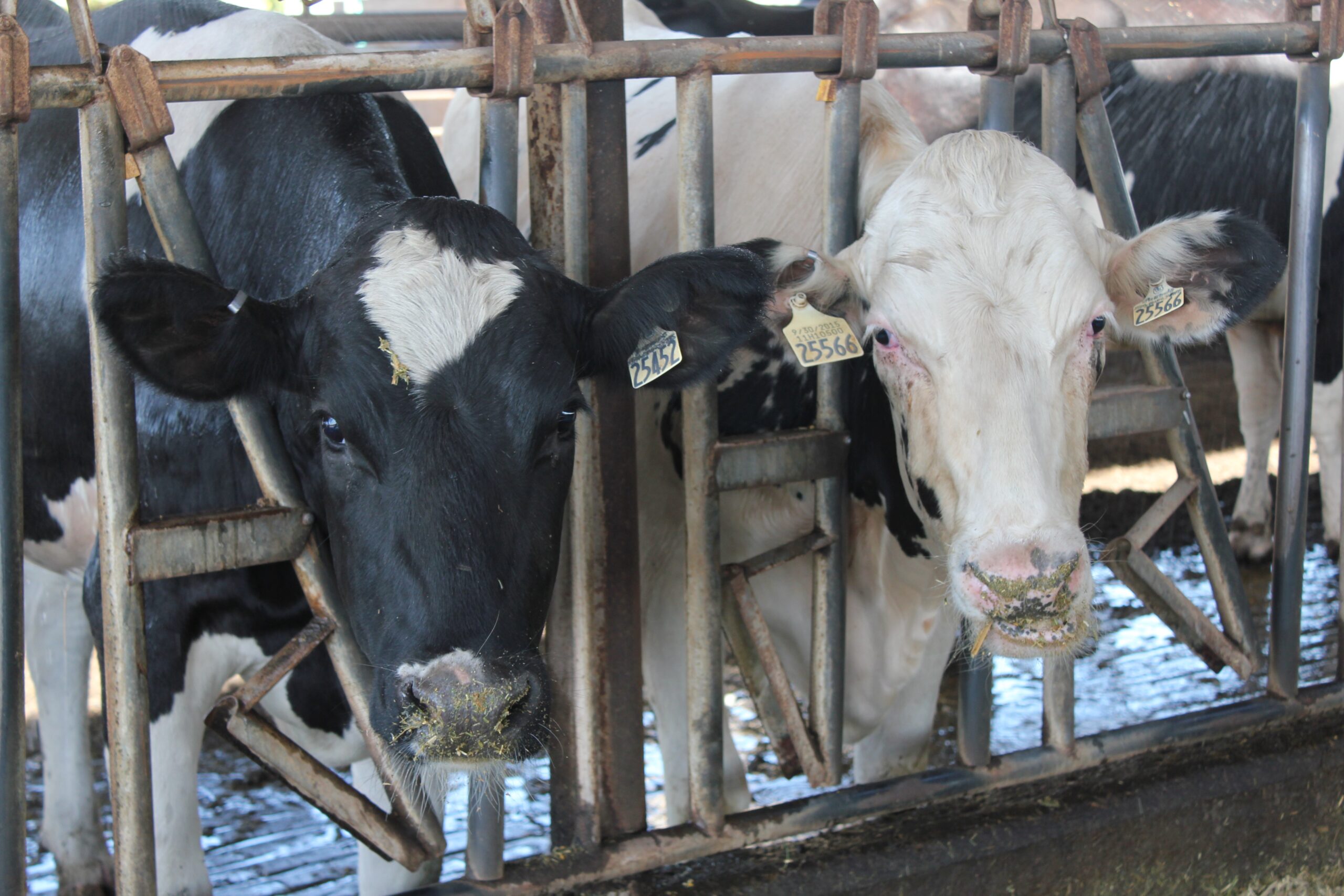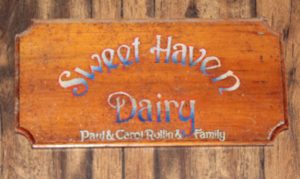

Paul Rollin (Donny & Andy’s father) established Sweet Haven Dairy in 1975, which later became Rollin Valley Farms as it’s known today.
What does a sustainable dairy look like? Brothers Donny and Andy Rollin have been farming their entire lives with that question in mind. Sweet Haven Dairy’s commitment to animal, crop and environmental health make them an ideal candidate for the 2017 Leopold Conservation Award.
The Rollin brothers are third-generation dairy farmers who came to Riverdale, CA in 1975 with their parents, who established their dairy with 350 cows. Today, Rollin Valley Farms milks over 2,000 cows and Donny and Andy work under the family-held tenet of connectivity: everything they do on the farm each day is part of a conscious cycle, from growing feed, to raising cows to producing milk.
Conserving Water
All farmers know that water is a precious resource, and the Rollin brothers make sure to get the most out of every drop while keeping their animals happy and healthy. Water in the farm’s daily operations is used multiple times over to first cool milk through a plate cooler, then to rinse cows and the barn before milking, then to flush the concrete lanes in the cows’ stalls and, finally, to irrigate the feed (or silage) crops for their cows. Additionally, the brothers adopted an innovative system that cools their cows in hot weather by spraying them with water intermittently, at certain temperatures. Cows regulate their temperatures by sweat and evaporation, much like humans, and keeping herds wet all the time doesn’t allow that natural process to keep them cool. The system is just a part of what’s helped reduce Rollin Valley Farms’ total water inputs by 50%, and protects their herd from extreme heat.
Rollin Valley Farms is also making the switch to water-wise drip irrigation, both in their almond orchards and, most recently, on 20 acres of silage corn in 2016. Dairy producers traditionally use a mix of liquid dairy manure and water to flood-irrigate their silage corn, which can lead to nutrients leaching into groundwater. Running water through drip tape targets water and fertilizers directly to crops’ roots to protect water quality and save limited water resources.
[slide-anything id=’4876′]
Protecting Air Quality
Like many dairies in California, Rollin Valley Farms grows their own silage corn to feed their cows. What makes them unique is their early adoption of an innovative harvesting technique called conservation tillage (CT). CT is a low-impact tilling practice that leaves crop stubble on the soil surface to increase soil permeability and health while decreasing dust and diesel pollution through fewer tractor passes over each field. It’s a perfect harvest and planting method for corn, and the Rollin brothers worked with the National Resources Conservation Service on an early field trial and have hosted multiple field days for other Central Valley farmers to come learn about CT and the brothers’ experience. Andy Rollin is also working with cover crops, which enrich the soil between corn and wheat feed plantings, and prevent further dust pollution from bare fields.
In addition to methods in the field, Rollin Valley Farms is conscious of how they store their feed corn to minimize volatile organic compounds and keep the piles small, which protects their workers and produces better food for their cows. They also compost their dairy manure to reduce greenhouse gases and commercial fertilizer dependence, and sell the manure solids to nearby farms as a local, organic soil amendment.
Award co-sponsors Sand County Foundation, the California Farm Bureau Federation and Sustainable Conservation will announce the 2017 Leopold Conservation Award winner in November, so stay tuned!
